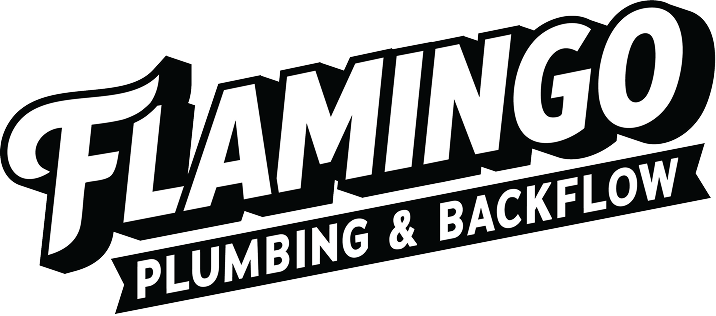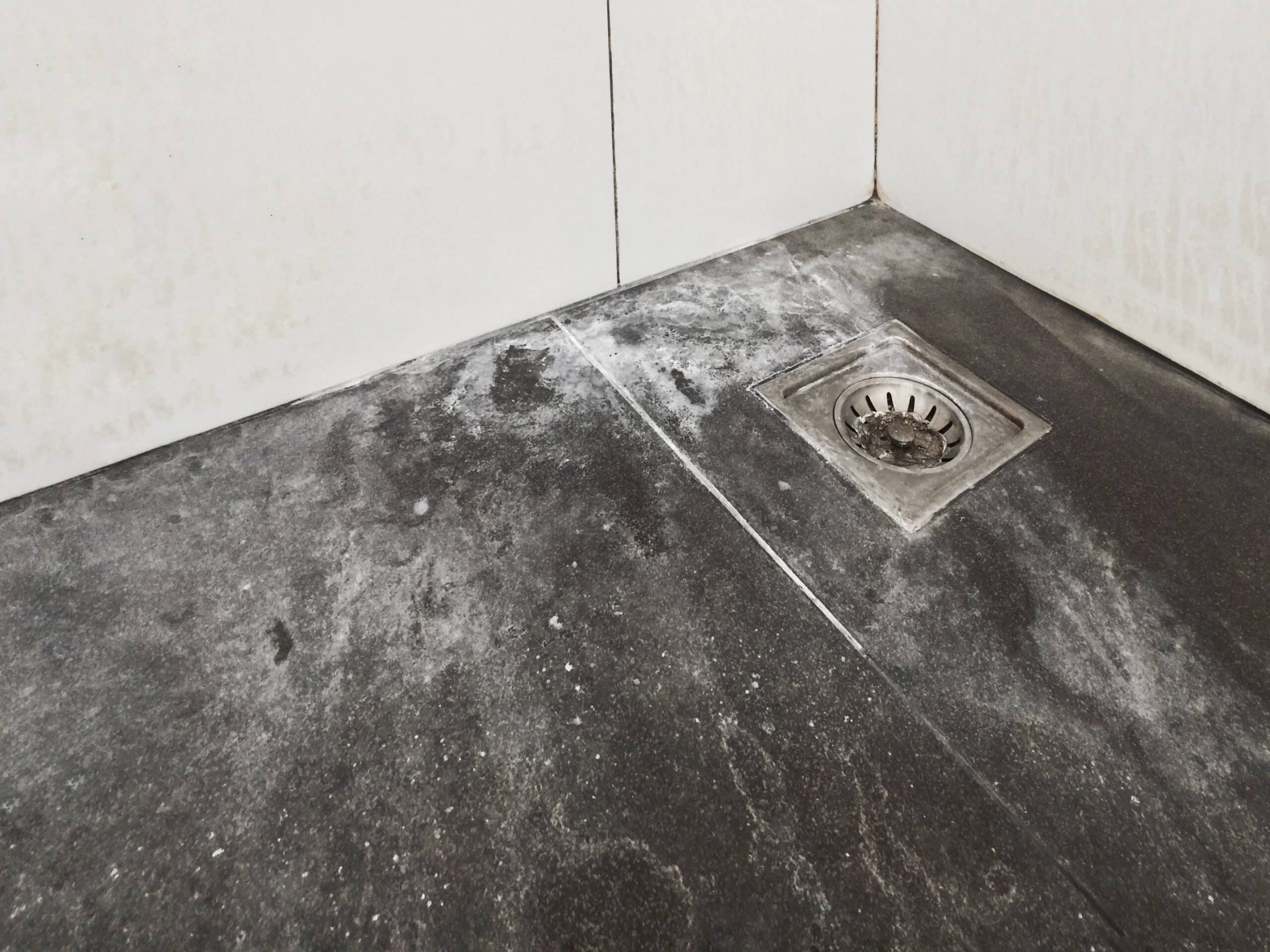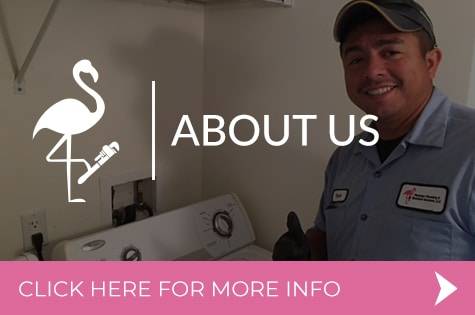Battling soap scum in areas with hard water can lead to frustrating clogs and hindered plumbing performance. These deposits not only slow down water flow but can also cause long-term damage if not addressed promptly. Understanding the science behind soap scum formation and the specific challenges posed by hard water is essential for maintaining clear and functional pipes in your home.
Understanding Hard Water
Hard water contains high levels of calcium and magnesium, minerals that interfere with soap’s ability to dissolve properly. This mineral-rich water turns washing into a chore, as it reduces soap’s cleaning efficiency and leads to the buildup of a chalky residue in your pipes. In plumbing systems, these mineral deposits not only decrease the lifespan of pipes but also escalate maintenance needs, making it crucial to recognize and treat hard water at its source.
The Chemistry of Soap Scum
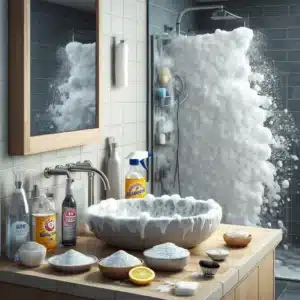 Soap scum occurs when the fatty acids in soap react with calcium and magnesium ions in hard water, forming a sticky, insoluble film. This reaction creates a compound that clings tenaciously to surfaces, including the insides of your pipes, shower walls, sinks and faucets. The resulting residue is not only unsightly but can also be a breeding ground for bacteria and mold, complicating cleaning efforts and impacting indoor air quality.
Soap scum occurs when the fatty acids in soap react with calcium and magnesium ions in hard water, forming a sticky, insoluble film. This reaction creates a compound that clings tenaciously to surfaces, including the insides of your pipes, shower walls, sinks and faucets. The resulting residue is not only unsightly but can also be a breeding ground for bacteria and mold, complicating cleaning efforts and impacting indoor air quality.
Moreover, the interaction between soap and hard water minerals leads to less effective cleaning. More soap is required to achieve normal cleaning results, increasing the rate of scum formation. Over time, this cycle exacerbates the buildup in plumbing systems, necessitating more frequent and intensive cleaning regimens.
Identifying Soap Scum Buildup
Recognizing soap scum buildup early can save a lot of hassle. Look for a gritty or filmy residue on bathroom fixtures, tiles, and especially around drains. This buildup often appears as white or gray patches that are tough to remove and may feel slightly rough to the touch. In your pipes, soap scum typically causes slower drainage and may lead to complete blockages if not cleared.
Distinguishing soap scum from other plumbing issues is key to effective treatment. Unlike mineral deposits from hard water alone, which are hard and crystalline, soap scum is softer and spongier. If you notice a decrease in water pressure or changes in water flow, soap scum may be coating the insides of your pipes, reducing their diameter and efficiency.
Prevention Strategies
Mitigating the formation of soap scum starts with addressing hard water. Installing a water softener can significantly reduce the mineral content in your water, cutting down on scum production. These systems replace calcium and magnesium ions with sodium, preventing the chemical reactions that lead to scum.
For day-to-day prevention, incorporate these habits into your routine:
- Dry surfaces after use: Wipe down shower walls and sinks to remove water and residual soap, minimizing scum formation.
- Use liquid soaps or shower gels: These often contain agents that soften water and are less likely to form scum than traditional bar soaps.
- Regular cleaning: Weekly cleaning with vinegar or a specialized hard water cleaner can keep surfaces free of buildup and maintain clear pipes.
Choosing the right cleaning products is crucial, especially in hard water areas. Opt for cleaners specifically designed to combat mineral buildup, ensuring they are safe for both your home and the environment. This proactive approach not only keeps your plumbing in top condition but also reduces the need for aggressive chemicals and extensive plumbing repairs down the line.
DIY Solutions for Removing Soap Scum
When soap scum has already formed, several effective DIY methods can help you eliminate it without the need for harsh chemicals. These solutions leverage household items to dissolve scum safely and restore the shine to your fixtures.
Start with these simple steps:
- Vinegar and Water Solution: Mix equal parts white vinegar and warm water in a spray bottle. Apply liberally to the affected area, let sit for 15 minutes, then scrub gently and rinse. Vinegar’s acidity breaks down soap scum without damaging plumbing.
- Baking Soda Paste: Combine baking soda with a small amount of water to form a paste. Apply this to tough scum, allow it to set for a few minutes, then scrub with a non-abrasive brush or sponge and rinse thoroughly. This mildly abrasive paste is great for stubborn deposits.
- Lemon Juice Spray: For a fresh-smelling and natural alternative, spray lemon juice on soap scum. The citric acid works similarly to vinegar but with a more pleasant scent. Let it sit, scrub, and rinse.
These methods are not only effective but also environmentally friendly, reducing the reliance on commercial cleaners that may contribute to further build-up or harm aquatic ecosystems when washed down the drain. Regular use can keep your bathroom spotless and extend the life of your plumbing.
Also Read: 6 Easy Tips On How To Unclog A Shower Drain
When to Call a Professional
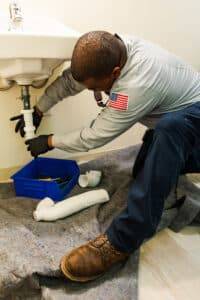 At times, DIY methods might not suffice to tackle the severity of soap scum buildups, especially when they impede your plumbing system’s functionality. If you notice that drains remain slow despite regular cleaning, or if there are recurring clogs and a noticeable drop in water pressure, professional intervention becomes crucial. These signs often suggest that soap scum, along with other debris, has solidified deep within the pipes, requiring more than just surface treatment.
At times, DIY methods might not suffice to tackle the severity of soap scum buildups, especially when they impede your plumbing system’s functionality. If you notice that drains remain slow despite regular cleaning, or if there are recurring clogs and a noticeable drop in water pressure, professional intervention becomes crucial. These signs often suggest that soap scum, along with other debris, has solidified deep within the pipes, requiring more than just surface treatment.
Flamingo Plumbing specializes in comprehensive plumbing solutions, including advanced techniques like drain cleaning and hydro-jetting—a powerful cleaning method that blasts through stubborn soap scum and other blockages with high-pressure water. Our skilled technicians not only clear out the obstructions but also perform thorough inspections to diagnose and rectify underlying issues, ensuring your system operates smoothly. Opting for regular maintenance not only restores efficiency but also extends the life of your plumbing, making it a wise and cost-effective choice for any homeowner struggling with hard water challenges.
Keeping your plumbing free from soap scum is essential for maintaining the efficiency and longevity of your home’s water systems, especially in areas with hard water. By understanding the causes, recognizing the signs, and applying both preventative measures and effective DIY solutions, you can protect your pipes and fixtures. Remember, when household remedies fall short, Flamingo Plumbing is here to provide professional expertise to ensure your plumbing remains in top condition, safeguarding your home against potential damages and costly repairs.
